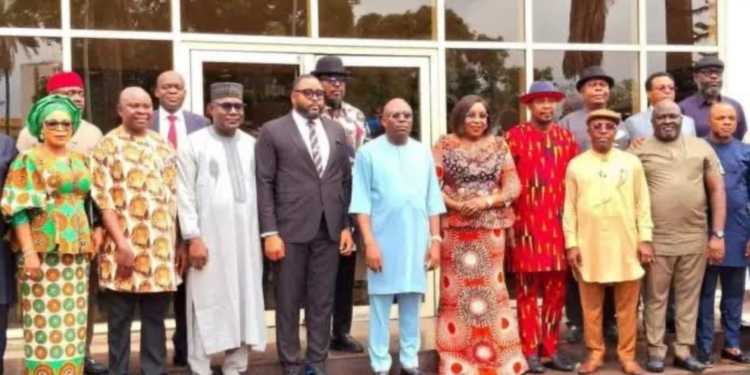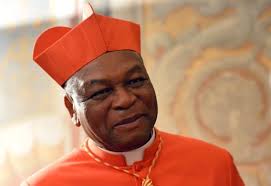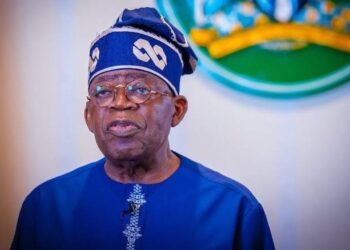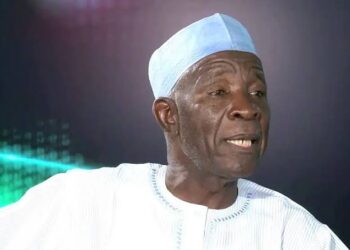Governor Siminalayi Fubara has officially inaugurated 23 newly elected local government chairmen in Rivers State, marking a significant milestone in grassroots governance.
The swearing-in ceremony took place at the Executive Council Chambers of the Government House in Port Harcourt, the state capital, on Sunday. This event followed closely on the heels of the local government elections, which were conducted by the Rivers State Independent National Electoral Commission (RSIEC) just a day earlier.
The swearing-in ceremony drew notable dignitaries, including Bauchi State Governor Bala Mohammed, who also serves as the Chairman of the Peoples Democratic Party (PDP) Governors’ Forum.
Governor Fubara expressed immense satisfaction with the success of the local government elections, attributing it to divine intervention. “It takes the help of God to survive the past few days,” Fubara stated, reflecting on the challenges leading up to the event.
He went on to extend his appreciation to President Bola Tinubu, lauding him for his democratic stance. Fubara also reassured Governor Mohammed of his unwavering loyalty to the PDP, despite the complexities of the current political landscape.
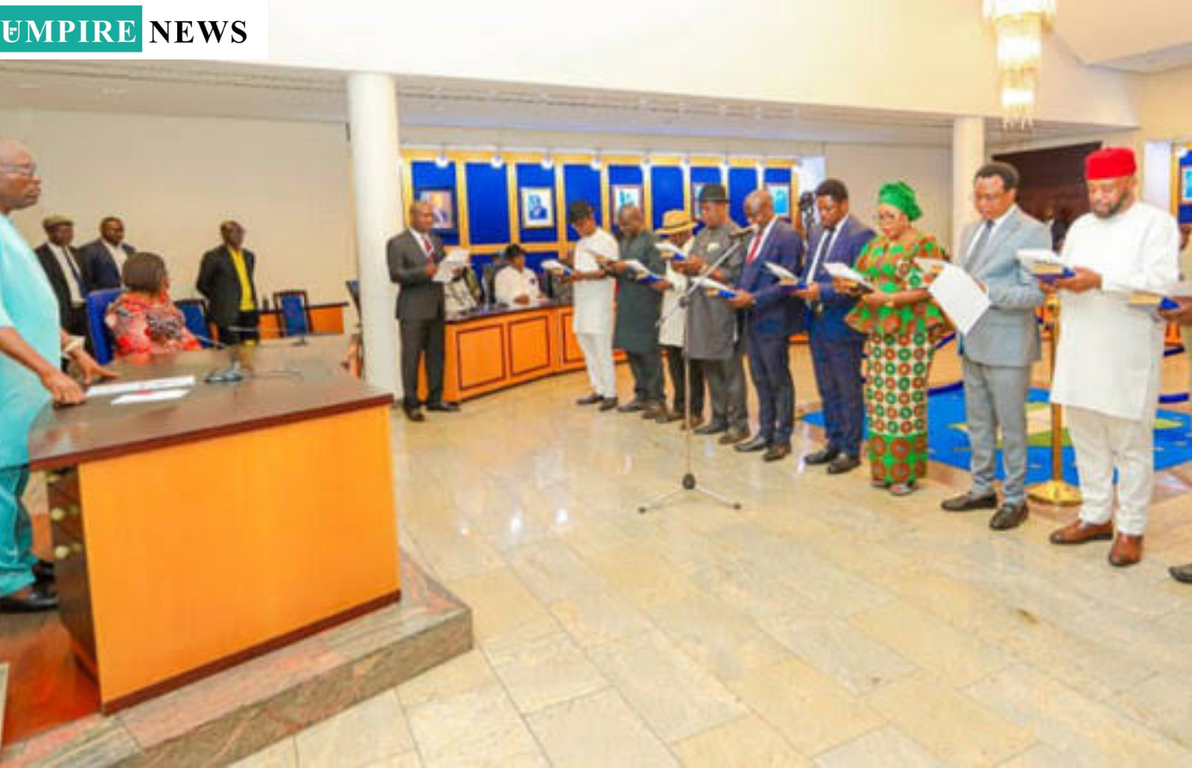
He noted that “a desperate situation requires desperate action,” indicating that his administration’s actions were driven by the need to rescue the local government councils.
With the support of the people, he asserted that the administration had acted decisively to preserve the integrity of these councils.
Governor Fubara took a clear stance against adopting a confrontational approach in dealing with opponents. He emphasized that, unlike others who may engage in such tactics, his government would not jeopardize the state’s assets or instigate unrest.
Instead, he remains committed to maintaining law and order while safeguarding the state’s interests.
In his address to the newly inaugurated local government chairmen, Fubara issued a stern reminder of their roles. He urged them to view themselves as public servants, not as rulers.
“The local government areas need development,” he stressed, challenging them to focus on serving the people, whom he described as the “real political structure.”
His message was clear: leadership at the local level is about service and the betterment of the communities they represent.
Earlier on the same day, the RSIEC had issued certificates of return to the newly elected chairmen following a closely watched election process.
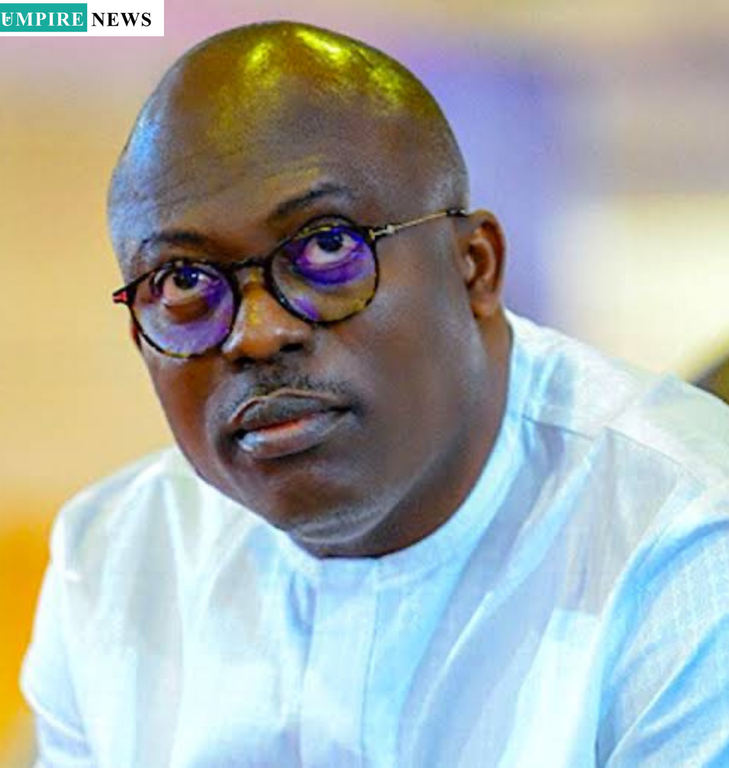
The Action People’s Party (APP) emerged victorious in 22 out of the 23 local government areas across the oil-rich state.
However, the election results for Etche Local Government Area were temporarily withheld as the collation of results was still ongoing.
RSIEC Chairman Adolphus Enebeli had, at that time, announced that results for the 319 councillorship seats and the chairmanship position for Etche LGA would be declared once collation was concluded.
The situation took a turn the following day when RSIEC declared Uzodinma Nwafor of the Action Alliance (AA) as the winner of the election in Etche LGA.
Despite the earlier delays, Enebeli affirmed that the election had been conducted in a manner that was “free, fair, and credible, despite all odds.”
He noted that polls officially closed at 3 p.m., and the voter turnout had been substantial, reflecting the enthusiasm of the electorate.
In his concluding remarks, Enebeli commended the patriotism displayed by the citizens who turned out to vote, expressing pride in their active participation in the democratic process.
The announcement of the election results was observed by key stakeholders, including members of the Inter-Party Advisory Council (IPAC), chairpersons of state electoral bodies from across the country, and representatives of the Nigerian Bar Association, who were present as observers to ensure transparency.
Enebeli also explained the unique circumstances that required the electoral body to adapt its procedures.
He remarked that the commission “adopted the principle of bi-location because of the exigencies” they encountered, underlining the challenges faced during the election process and how they had to make critical adjustments to ensure its smooth execution.
This comprehensive local government election process in Rivers State signals a continued commitment to democratic governance and public service, despite the hurdles encountered along the way.


